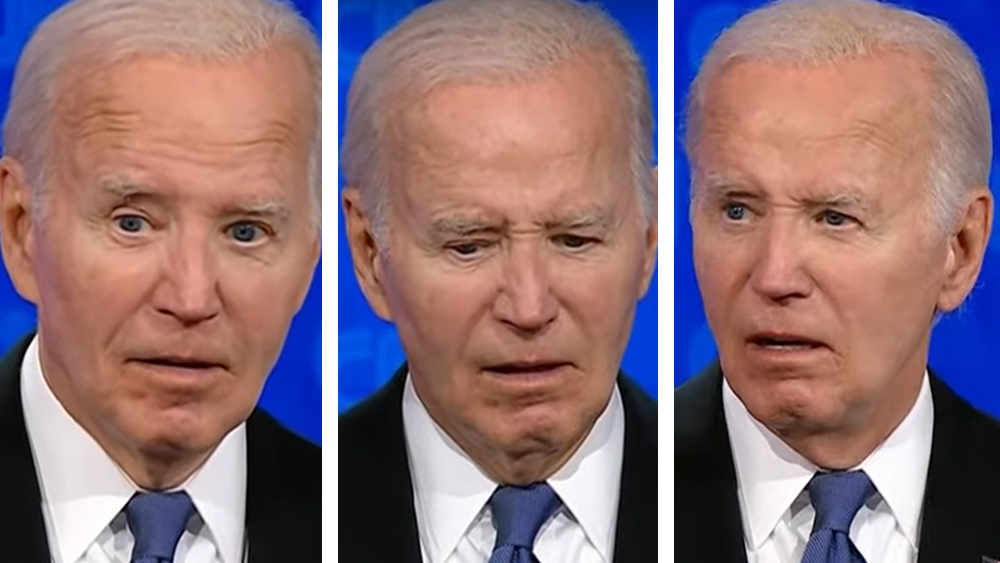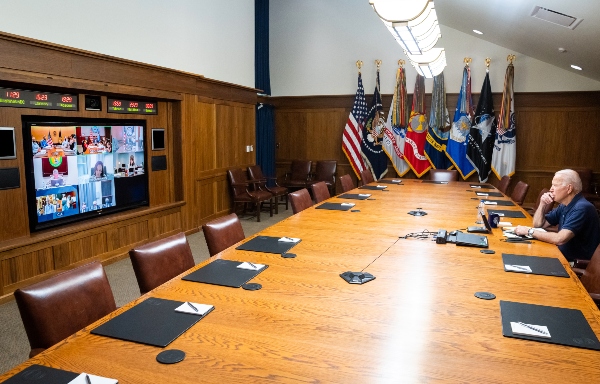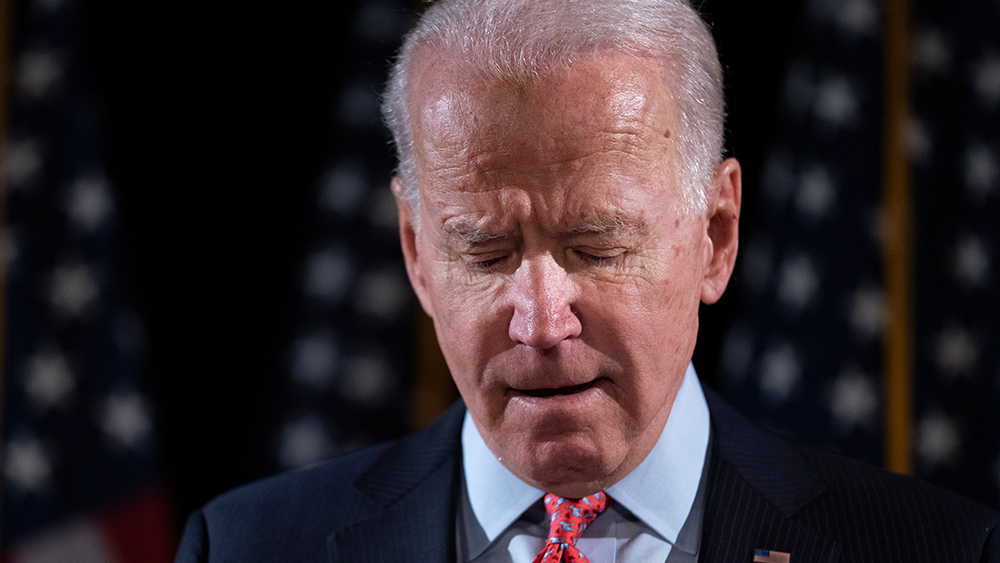French government fines prominent news channel for allowing a climate change skeptic to speak unchallenged
07/18/2024 / By Richard Brown

The incident involving Philippe Herlin’s remarks on CNews, a prominent French news channel, has stirred significant controversy and regulatory action.
Herlin, a notable economist, was given a platform to express his skepticism regarding anthropogenic global warming during a broadcast. He characterized climate change as a fabricated concept aimed at justifying state intervention, going so far as to describe it as a form of totalitarianism.
Neither the hosts of the program nor any other participants in the studio challenged his assertions. This lack of opposition on air ultimately led to repercussions for CNews.
The French media regulator, Arcom (formerly CSA), conducted an investigation and found that CNews had violated broadcasting standards by failing to ensure a balanced presentation of controversial viewpoints. (Related: Trump announces plans to reject CBDCs, promote free speech in AI, ban government censorship and defund censorship institutions.)
As a result, Arcom imposed a €20,000 ($21,880) fine on the channel for allowing Herlin’s views to go unchallenged.
The fine has sparked considerable debate about the role of media regulation and the freedom of expression in France.
Selective application of regulatory standards
Critics point out that while Arcom insists on impartiality in broadcasting, there is a historical precedent of mainstream media outlets overwhelmingly promoting the consensus view on issues like climate change, often without giving adequate airtime to dissenting perspectives.
Herlin’s comments have become a focal point for discussions on journalistic integrity and the boundaries of free speech. His assertion that climate change discourse serves political agendas rather than scientific truth challenges the dominant narrative supported by many media outlets and governmental bodies
Moreover, the timing and nature of Arcom’s enforcement have raised suspicions of selective application of regulatory standards. Critics argue that the reaction to Herlin’s remarks reflects a broader concern within established circles about the potential impact of dissenting viewpoints on public opinion and policy decisions.
Four months ago, France’s highest administrative court ordered Arcom to conduct a thorough examination of whether CNews complies with regulations governing balanced and independent journalism.
The ruling marks a significant victory for Reporters sans Frontières (RSF), which petitioned the State Council to overturn Arcom’s previous decision not to investigate the channel often dubbed as the “French Fox News” by critics.
RSF had accused CNews of morphing into an “opinion media” outlet and alleged that Arcom had repeatedly disregarded calls to enforce the channel’s obligation to uphold “honesty, independence and pluralism” in its reporting.
The court’s directive compels Arcom to assess not only the diversity of political views during electoral periods but also the breadth of opinions expressed by columnists, presenters and guests across CNews‘ programming.
Christophe Deloire, RSF’s secretary-general, hailed the court’s decision as a “historic victory for democracy and journalism,” emphasizing the critical role of media pluralism in safeguarding democratic principles.
He underscored RSF’s decade-long advocacy for Arcom to exercise its regulatory powers effectively to ensure diverse factual and opinion-based content for citizens.
In previous actions, Arcom had fined CNews €200,000 ($218,796) in 2021 for broadcasting remarks by far-right commentator Éric Zemmour on the asylum system, which the regulator classified as hate speech. Zemmour, known for his controversial views and prior convictions related to hate speech, had been a prominent figure on CNews before his presidential candidacy in 2022 and remains a frequent guest.
Despite its rising viewership, surpassing BFMTV in December ratings, CNews has vehemently denied any political alignment and rejected comparisons to Rupert Murdoch’s Fox News.
Serge Nedjar, the channel’s director-general, emphasized its commitment to covering contentious topics like insecurity, immigration and identity, asserting that these subjects resonate with a broad segment of the French public.
In response to criticism about its editorial stance, Roch-Olivier Maistre, president of Arcom, acknowledged CNews‘ evolution towards an opinion-oriented format reminiscent of channels found in other countries, notably the United States. He clarified that while Arcom monitors political pluralism in terms of airtime given to politicians, the regulation does not extend to evaluating the viewpoints expressed by the channel’s commentators.
Follow Censorship.news for more news about people being censored in America and other parts of the world.
Watch the video below to learn why some countries are clamping down on free speech.
This video is from the The HighWire with Del Bigtree channel on Brighteon.com.
More related stories:
French official admits censorship is needed for government to control public opinion.
Trojan horse “child safety” regulation is a CENSORSHIP bill in disguise.
Sources include:
Submit a correction >>
Tagged Under:
big government, Censorship, climate change, conspiracy, cyberwar, deception, fascism, France, free press, freedom, global warming, intolerance, Journalism, Liberty, mainstream media, propaganda, public opinion, speech police, Suppressed, thought crime, thought police, Tyranny
This article may contain statements that reflect the opinion of the author
RECENT NEWS & ARTICLES
COPYRIGHT © 2017 PENSIONS NEWS




















